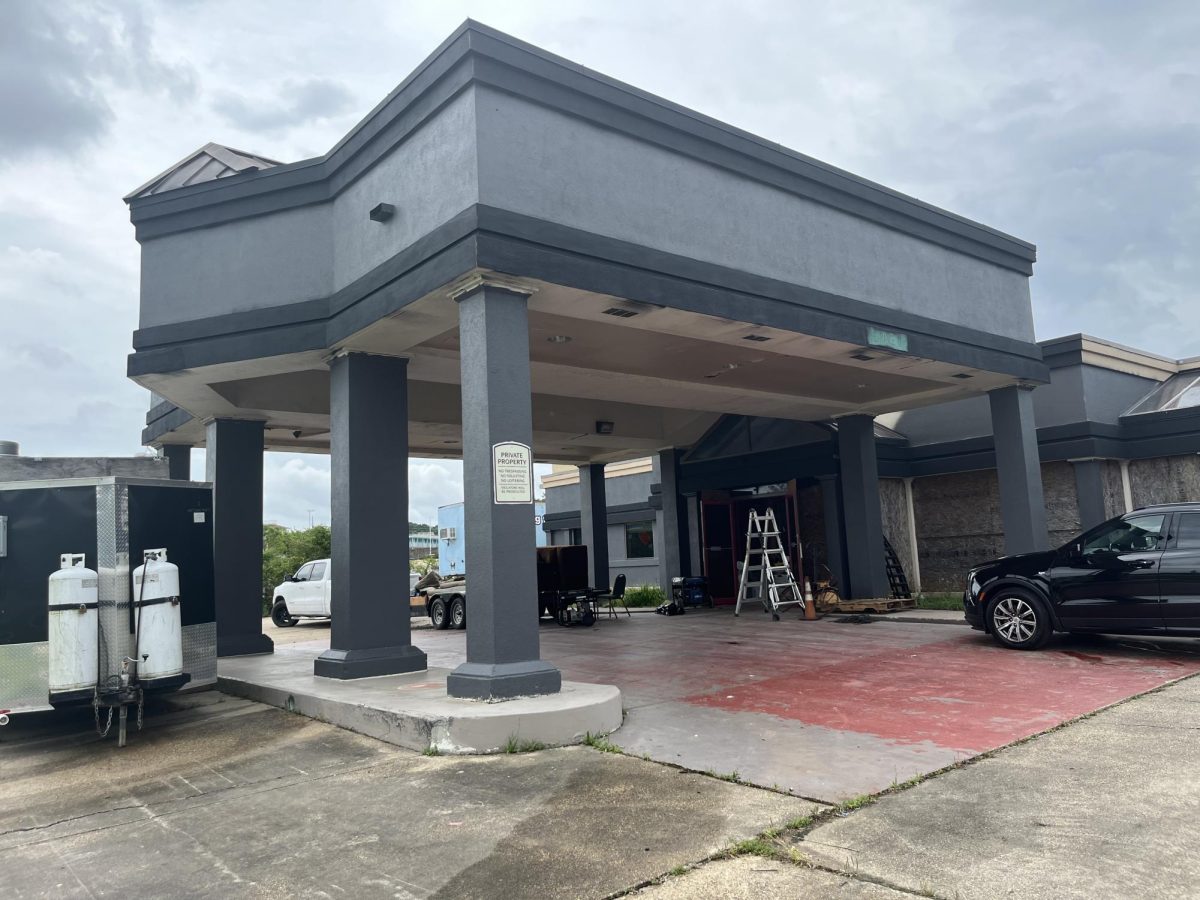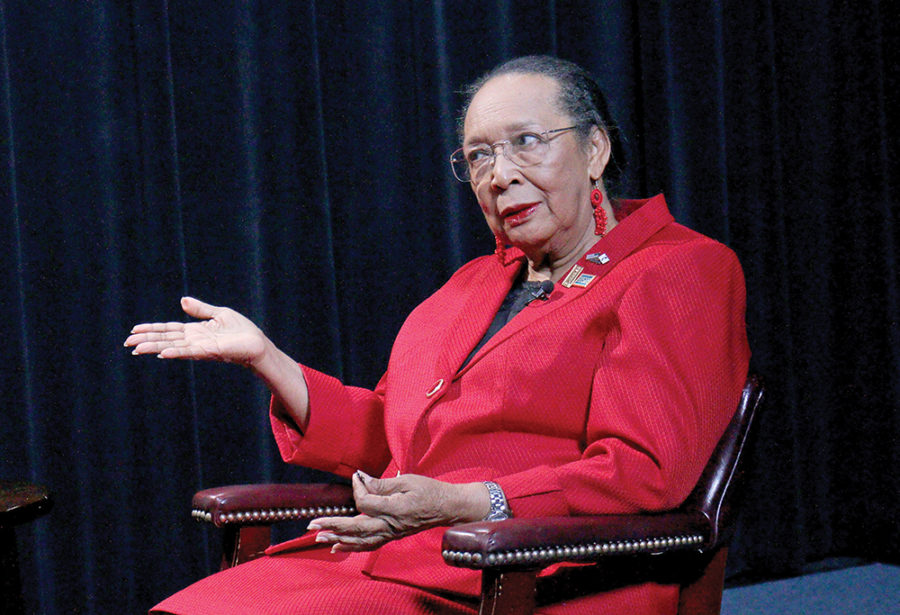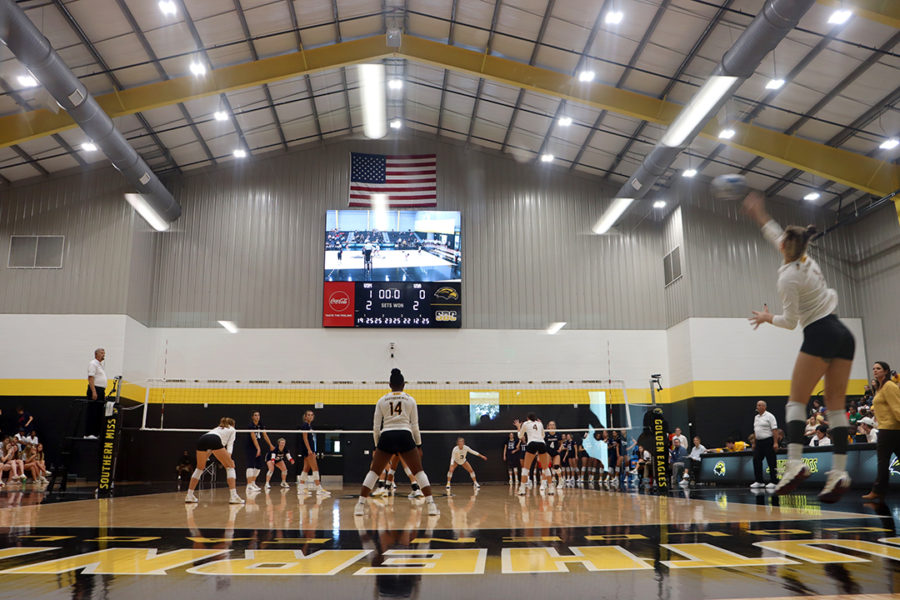Mississippi ranks close to last, if not last, in several categories. But the state is tied No.1 for something: gross brain drain.
Brain drain refers to the number of college-educated people who leave their birth state after graduation, which causes a decrease in the labor force and revenue for the state. According to a report released in April by the U.S. Congress Joint Economic Committee, Mississippi has suffered from the highest surge of graduates moving out of state from 1970 to 2017.
As job openings fail to attract recent graduates, and political issues divide the state, undergraduates and graduates either await the day they can leave or join legislators in advocating for their peers to stay.
Applied economics professor Elif Filiz said sectors with the most openings aren’t attractive to graduates.
“People also want to see improvements or a certain level of satisfaction in their social life and welfare. I believe especially for the new generation, millennials, exploring new possibilities and living in more diverse places is important. They seek places where they can be better off not only economically but also socially,” Filiz said
Filiz said Mississippi’s unemployment rate is a sign that the job sectors with the most openings do not attract those with degrees. The Mississippi Department of Labor Statistics reports the state’s unemployment rate is 5.6%, which is higher than the national rate of 3.3%.
In May 2018, the most popular occupations in Mississippi were office and administrative support, sales, production, food preparation and service and transportation, which are jobs that usually do not require more than a high school degree and pay less than the state’s average hourly wage of $18.95.
Southern Miss alumnus and Mississippi native Carlton McGrone dreamed of being an entertainment journalist or an author in New York before he graduated in May.
He knew he wanted to leave Mississippi after he left the South for the first time a year earlier. In New Jersey, McGrone said he felt a freedom he had never felt before.
“To me, Mississippi feels like a cage,” McGrone said. “It’s not that I feel constant discrimination or something connected to me being black. It’s just simply that I feel like Mississippi isn’t a place for young, artistic minds that want more than to go down the conventional, traditional path that baby boomers went down.”
Of the 407 May 2019 Southern Miss graduates that reported a geographic location for their next destination, about 33% reported they were relocating outside of Mississippi, according to data from Career Services.
McGrone’s plan to leave after graduation was unsuccessful.
“Frankly, I knew before graduating that it would be difficult to find a job, but I had no idea that it would be possibly the worst few months of my life.”
McGrone said he spent most days before and after graduation applying to at least six jobs for five to seven hours in coffee shops only to receive rejection after rejection or nothing at all.
Two months after he graduated, he finally landed a part-time job at Barnes and Noble in Jackson. Three weeks later, his former internship supervisor emailed him about an opening at he University Press of Mississippi, where he is working now as assistant to the director.
Although he is happy to be on the path of his ideal career, McGrone still plans on leaving the state soon. The higher cost of living in the North doesn’t discourage him.
“No one got to where they are because they were afraid of going broke. I’m more afraid of becoming horribly depressed and being a faceless cog in a machine. I’d rather couch surf and forge my own path than be afraid of money issues,” he said.
According to the report from Congress, educated Mississippians are most likely to migrate to Texas, Alabama, Louisiana, Tennessee and Georgia.
Greta Thorderson lived in Mississippi for 11 years before moving to Utah, her home state, and eventually Tennessee after graduating from high school in 2018. Since leaving Mississippi, she said she hasn’t faced many challenges but has had to answer questions about the existence of the Ku Klux Klan and the prevalence of racists in Mississippi many times.
She said she chose not to attend college in Mississippi because she “wanted a chance to meet more open-minded communities.”
During her time in Mississippi, Thorderson said she initially struggled to adjust to the Bible Belt after growing up surrounded by Mormons. By the time she entered middle school, she earned the label of “feminazi liberal” after posting about International Women’s Day on social media. The label stuck in high school and made it hard for her to make friends.
“Classmates would roll their eyes when I’d raise my hand. Even after high school, posts were made with comments such as, ‘This is some Greta liberal a– s—-.’ It really bothered me,” Thorderson said. “I was a juvenile who wanted to seem fun and cool to my peers, but my political beliefs were brought up before I could even give a good argument as to why I would be a good friend. A lot of females believed the same things I did and even would tell me that they believed the same things as me, but the difference was they stayed quit to stay in the comfort of their male counterparts, and I didn’t.”
Representative of House District 102 Missy McGee received her undergraduate and master’s degree from Southern Miss in the 90s. Back then, she didn’t hear many discussions about her peers planning to leave the state.
When McGee graduated, she moved to Washington, D.C. and worked in Capitol Hill for three years, which she considered her temporary home. Today, she works to retain students and encourage young professionals to choose Hattiesburg as their home.
In February, she co-sponsored HB816, Mississippi’s Educational Talent and Recruitment Act, which would have provided an income tax rebate to recent graduates who claim residency in the state and work here for five years.
The bill received overwhelming support from the House with a vote of 111-2. The bill died in the Senate’s Finance Committee a month later.
“I think this would have been a great first step in encouraging young people to build a life for themselves here,” McGee said. “But it is a complicated issue, which I believe goes beyond policy.”
The Republican said bills like HB 1523, Religious Liberty Accommodations Act, and the state flag divide Mississippi residents and send the message that Mississippi does not welcome everyone, which she said is false.
“We must change the perception of our state in order to truly attract the next generation, and changing that perception will take time and take more than an act of legislation at the state capitol,” McGee said. “However, policymakers must truly believe that the most important generation is the next generation and translate that belief into budgeting priorities.”
Senior criminal justice major Jessica Barnett said she believes state leaders and slow adoption of more progressive policies are the primary reasons why her classmates are leaving.
“Additional benefits could be very, very helpful to make people want to stay, but I think we just aren’t to that point yet with our state government,” Barnett said. “ I’ve never considered actual legislation that could help make that happen because I think that there are so many more important matters to consider legislation for first, such as LGBTQ+ rights, education aid and finding a solution to the state poverty rates.”
Barnett has lived in Mississippi and plans to stay in the state after graduation to pursue a master’s in criminal justice if her plan to join the Peace Corps doesn’t work out. Calling herself an outlier, she said she loves Mississippi and considers it her home even after traveling to several states and countries.
Still, Barnett said she has thought about leaving Mississippi and has discussed the matter with friends, many of them from out of state, who have shared the same thoughts several times. Financial reasons and lack of connections out of state stop her from leaving.
“I understand that Mississippi may have different political standings than what they believe in because it is a primarily red state; however, I think that these people who push so hard to leave could be some of the best people to take ownership in change and facilitate that discussion here,” Barnett said
Thorderson’s entire family relocated to Georgia soon after she graduated. She said her family doesn’t regret their time in Mississippi, but they saw a need “to have a season of [their] lives away from it.”
“It’s strange how planted people in Mississippi can become,” Thorderson said. “I think if some Mississippians would leave for half a decade or so and then come back, it would help with the closed-off bigotry mindset some possess.”
Although she doesn’t plan on returning to Mississippi soon, she still keeps up with Mississippi politics.
“I believe because I was educated by the Mississippi school systems, I deserve a voice in the Mississippi political agenda. Older folks still cheer and rally for their old college alma maters,” Thorderson said. “ I want the state to become better and be better for those who don’t have the privilege to leave.”






































